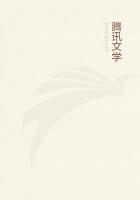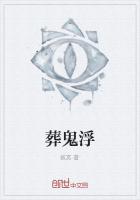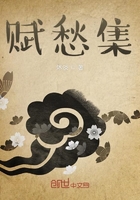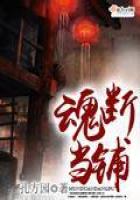345. All is glistening show. "No fact respecting Fairy-land seems to be better ascertained than the fantastic and illusory nature of their apparent pleasure and splendour. It has been already noticed in the former quotations from Dr. Grahame's entertaining volume, and may be confirmed by the following Highland tradition:--'A woman, whose new-born child had been conveyed by them into their secret abodes, was also carried thither herself, to remain, however, only until she should suckle her infant. She one day, during this period, observed the Shi'ichs busily employed in mixing various ingredients in a boiling caldron, and as soon as the composition was prepared, she remarked that they all carefully anointed their eyes with it, laying the remainder aside for future use. In a moment when they were all absent, she also attempted to anoint her eyes with the precious drug, but had time to apply it to one eye only, when the Daoine Shi' returned. But with that eye she was henceforth enabled to see everything as it really passed in their secret abodes; she saw every object, not as she hitherto had done, in deceptive splendour and elegance, but in its genuine colours and form. The gaudy ornaments of the apartment were reduced to the walls of a gloomy cavern. Soon after, having discharged her office, she was dismissed to her own home. Still, however, she retained the faculty of seeing, with her medicated eye, everything that was done, anywhere in her presence, by the deceptive art of the order. One day, amidst a throng of people, she chanced to observe the Shi'ich, or man of peace, in whose possession she had left her child, though to every other eye invisible. Prompted by maternal affection, she inadvertently accosted him, and began to inquire after the welfare of her child. The man of peace, astonished at being thus recognized by one of mortal race, demanded how she had been enabled to discover him. Awed by the terrible frown of his countenance, she acknowledged what she had done. He spat in her eye, and extinguished it for ever.'
"It is very remarkable that this story, translated by Dr. Grahame from popular Gaelic tradition, is to be found in the Otia Imperialia of Gervase of Tilbury. [FN #10]([FN#10] "This story is still current in the moors of Staffordshire, and adapted by the peasantry to their own meridian. I have repeatedly heard it told, exactly as here, by rustics who could not read. My last authority was a nailer near Cheadle" (R. Jamieson).) A work of great interest might be compiled upon the original of popular fiction, and the transmission of similar tales from age to age, and from country to country. The mythology of one period would then appear to pass into the romance of the next century, and that into the nursery tale of the subsequent ages. Such an investigation, while it went greatly to diminish our ideas of the richness of human invention, would also show that these fictions, however wild and childish, possess such charms for the populace as enable them to penetrate into countries unconnected by manners and language, and having no apparent intercourse to afford the means of transmission. It would carry me far beyond my bounds to produce instances of fable among nations who never borrowed from each other any thing intrinsically worth learning. Indeed the wide diffusion of popular factions may be compared to the facility with which straws and feathers are dispersed abroad by the wind, while valuable metals cannot be transported without trouble and labour. There lives, I believe, only one gentleman whose unlimited acquaintance with this subject might enable him to do it justice,--I mean my friend Mr. Francis Douce, of the British Museum, whose usual kindness will, I hope, pardon my mentioning his name while on a subject so closely connected with his extensive and curious researches" (Scott).
355. Snatched away, etc. "The subjects of Fairy-land were recruited from the regions of humanity by a sort of crimping system, which extended to adults as well as to infants. Many of those who were in this world supposed to have discharged the debt of nature, had only become denizens of the 'Londe of Faery'"(Scott).
357. But wist I, etc. But if I knew, etc. Wist is the past tense of wit (Matzner). See on i. 596 above.
371. Dunfermline. A town in Fifeshire, 17 miles northwest of Edinburgh. It was long the residence of the Scottish kings, and the old abbey, which succeeded Iona as the place of royal sepulture, has been called "the Westminster of Scotland." Robert Bruce was the last sovereign buried here.
374. Steepy. Cf. iii. 304 above.
376. Lincoln green. See on i. 464 above.
386. Morning-tide. Cf. iii. 478 above.
387. Bourne. Bound, limit. Cf. the quotation from Milton in note on iii. 344 above.
392. Scathe. Harm, mischief. Spenser uses the word often; as in F. Q. i. 12, 34: "To worke new woe and improvided scath," etc.
Cf. Shakespeare, K. John, ii. 1. 75: "To do offence and scathe in Christendom;" Rich. III. i. 3. 317: "To pray for them that have done scathe to us," etc.
393. Kern. See on 73 above.
395. Conjure. In prose we should have to write "conjure him."403. Yet life I hold, etc. Cf. Julius Caesar, i. 2. 84:
"If it be aught toward the general good, Set honor in one eye and death i' the other, And I will look on both indifferently;For let the gods so speed me as I love The name of honor more than I fear death."411. Near Bochastle. The MS. has "By Cambusmore." See on i.
103 and 106 above.
413. Bower. Lodging, dwelling. See on i. 217 above.
415. Art. Affectation.
417. Before. That is, at his visit to the Isle. Cf. ii. 96fol. above.
418. Was idly soothed, etc. The MS. has "Was idly fond thy praise to hear."421. Atone. Atone for. Shakespeare uses the verb transitively several times, but in the sense of reconcile; as in Rich. II. i.
1. 202: "Since we cannot atone you," etc. Cf. v. 735 below.
433. If yet he is. If he is still living.
437. Train. Lure; as in Macbeth, iv. 3. 118:


